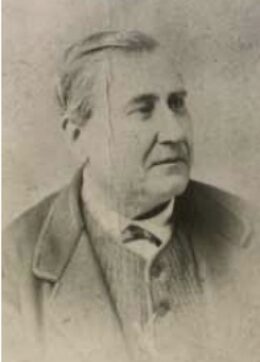
Handwritten outline
3 pages
Author(s)
Tu chanteras, tu ne chanteras
Known under different titles (Tu chanteras, tu ne chanteras pas; Chantera, chantera pas…), this play is one of the classical Guignol texts. It is a part of the second installment of the Théâtre lyonnais de Guignol (The Guignol theatre from Lyon) published by Jean-Baptiste Onofrio in 1870, a collection of the plays written by Laurent Mourguet (1769-1844), the creator of Guignol, or by his descendants. Onofrio introduces the play as a farcical sketch that the troupe performed before the main show, as an introduction.
The version described here is that of the oldest known manuscript, kept in the Musée Gadagne of Lyon in the funds Léopold Dor. It bears the initials of the Rhône subprefecture in Villefranche-sur-Saône, dated from December 11th, 1852. Victor-Napoléon Vuillerme Dunand wrote « author » next to his signature, as he did on every manuscript submitted to the subprefecture so that he could be allowed to perform them - but they are actually older texts, in the repertoire of the troupe of Laurent Mourguet’s descendants. It is impossible to determine when they were first played.
Here, we only have the plot outlines with the principal lines and the stage directions. Comparisons with the versions published by Onofrio in 1870 or Gaston Baty in 1934 show how the play developed: running gags were emphasised, and actions were shortened and justified.
The hero is stuck between two contradictory orders
The Docteur (Doctor) advises Coquerel to protect his sick wife from any noise. Coquerel tells his wife that he will order his servant Cadet to ensure that no one sings or screams on the square. A Militaire (Military man) coming back from Toulon on foot and getting close to his house stops in an inn. Guignol has just been thrown out of the house where he was a servant and he sings to feel better. The Militaire congratulates him on his voice and gives him five francs so that he continues to sing in front of the inn. Cadet asks Guignol to stop singing at once, and gives him ten francs to keep quiet. The Militaire comes back and requires that Guignol sings, Cadet hits Guignol to make him keep quiet, the Militaire does the same thing and Guignol beats them both. The Militaire states that Guignol fought well, and invites him to follow him home so that he can sing as he pleases.
